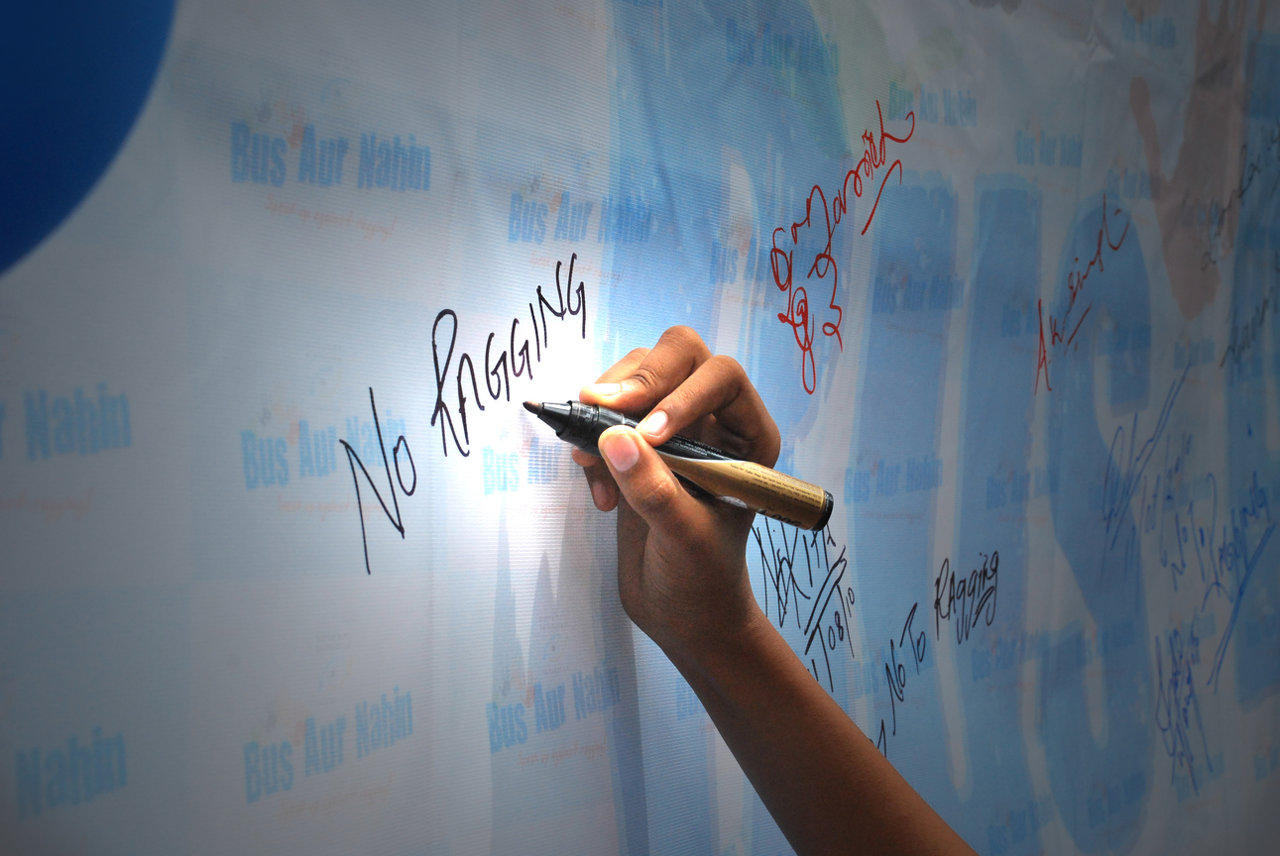By Azreen Azirinee Azizi
GOMBAK, 7 June 2017: The Star online (2 June) reported that a navy cadet officer from the Malaysian National Defence University (UPNM), Zulfarhan Osman Zulkarnain, 21, has died after he was allegedly bullied by his varsity colleagues. The third year engineering student was found with burnt marks all over his body at an apartment in Sepang.
Defence Minister, Datuk Seri Hishamuddin Hussein via his Twitter expressed that action would be taken against those responsible.
œI have ordered the armed forces and UPNM to conduct an urgent investigation. No one will be spared legal action if found guilty, the Minister said.
Following the death of the young cadet, 36 defence varsity students have been arrested in connection with his death. This case is being treated under murder investigation. Netizens viewed this case as a ragging issue and have been discussing about the issue on social media.
According to dictionary “ragging” means when subjecting someone to a teasing especially in an intense or prolonged manner. Another word that could relate to this act is “hazing” which refers to rituals, challenges and other activities involving harassment, abuse or humiliation used as a way of initiating a person into a group.
This practice has been widespread in some Malaysian tertiary institutions and it is usually being practised during orientation week by the seniors. Some call this act a form of “culture”.
Following the recent ragging case which has caused death netizens were unhappy about it and many have expressed their views and opinion in the social media.
One account on Twitter has called for “ragging culture” to be desisted during orientation week as it did not bring any benefit to the new students.
Malaysian celebrity Redza Minhat shared his view regarding this culture describing it as a torture and calling for this practice at educational institutions to be ceased.
œRagging should stop whether in schools, universities or institutions. If you want students or people to toughen up, ragging isnt the right way.
On the view of one social media user who believed that œragging is a form of training to strengthen physical and mental states of an individual, Redza refuted such statement saying that œpeople who are responsible for such incidents are the same people who believe ragging is useful for people to toughen up”. He called on those who believed in such practice to stop justifying their action.
One netizen commented that œragging is a norm in every school but theres a limit to it. But another netizen sought explanation as what is considered œover the limit in ragging.
Although the definition describes ragging as teasing, theres no clear line as to what constitute as “over the limit” in ragging. Some netizens were confused by the definition and viewed ragging as something to do with intense scolding by the seniors or doing something that seniors have asked juniors to do which were not favourable to them.
Only a few percentage of netizens on social media believed that the ragging culture is not wrong to be practised in institutions, especially in the military academy, as long as it wont lead to death. Somehow the recent case had proved that ragging can cause death and it will cause more deaths in the future if it is not being properly managed now.
Shawal Ras, who was formerly IIUMToday managing editor and currently a lecturer in a private college, said that if this act is practised by his students he would not tolerate it as he believes humanity comes first.
œIll never tolerate this. Humanity’s first, he said firmly.
“Ragging not only cause death but some who were exposed to the culture were mentally and physically hurt when its prolonged,” he added.
Yu Fakhrullah, a student of IIUM, expressed that the culture of ragging or hazing has to stop. He described IIUM as lucky for such culture is not practised here. œThis has to stop. We are lucky that IIUM students are not exposed to such culture.
However, most of the netizens agreed that the culture of ragging should be condemned and should not be practised at all at educational institutions.
A writer, Teme Abdullah said, œTheres no place for ragging culture in our society and I would encourage social media followers to condemn such a behaviour.”
One social media user Madihah even suggested for the Malaysian authorities to come up with anti-ragging rules like in India.
A National Anti-Ragging Helpline was created in India in 2009 to help victims of ragging and to take action against those responsible.***
